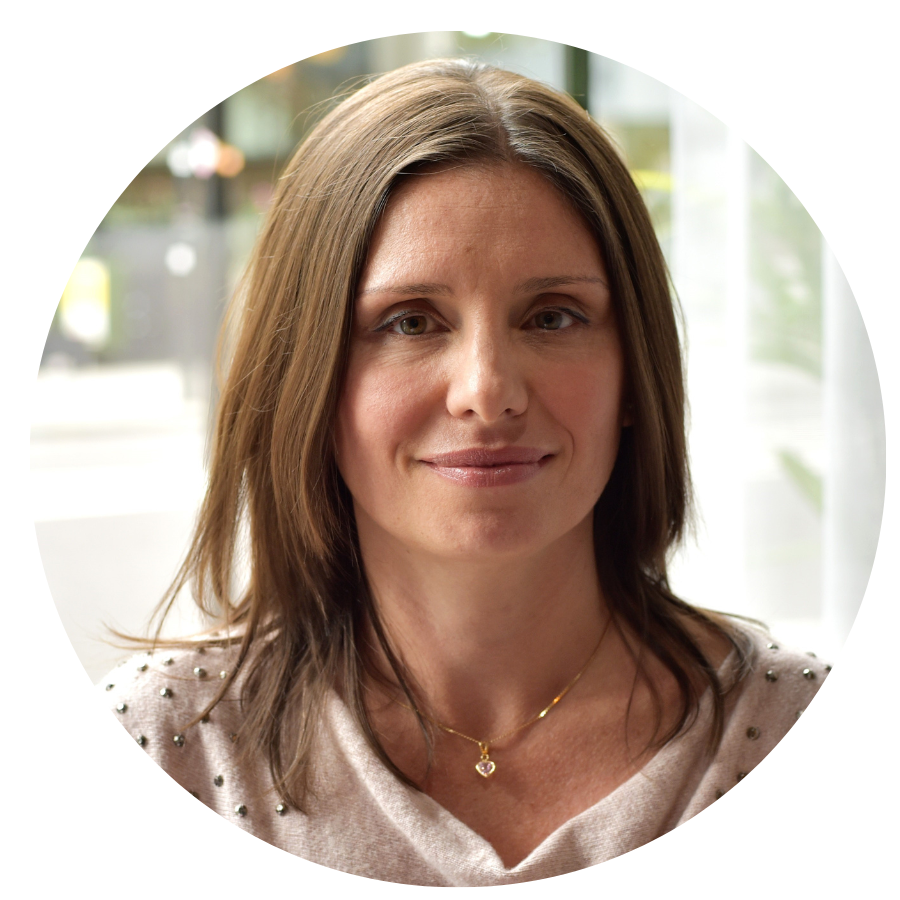To celebrate International Women’s Day and Women of Aviation in Worldwide Week, we’ve asked Dr Cristina Ruscitto, Senior Consultant, Fatigue Risk Management, to share details of her experience of working in aviation.
Tell us about your roles in Fatigue Risk Management (FRM)
We help operators in safety-critical industries understand and manage their fatigue risk so that personnel are alert enough to carry out their roles safely. Our work can involve different activities such as doing a fatigue risk management diagnostic to assess fatigue levels and the effectiveness of fatigue management.
We use tools to identify fatigue ‘hot spots’ in a roster, where they are coming from and give recommendations to reduce fatigue risk. As well as consultancy of this type, we also deliver fatigue training which we adapt to suit the context and needs of an operator. For example, by raising awareness of the fatigue associated with a particular schedule or task and, most importantly, FRM is a shared process between the individual and management. Both have the responsibility to use strategies to reduce fatigue risk that may be work-related and non-work related.
Because FRM is rooted in sleep science, another aim of the training is to help individuals understand the role of sleep and circadian rhythms in managing fatigue at work and at home. For example, why is a particular schedule rotation challenging to adapt to and disruptive from a sleep perspective? What can individuals do to prepare for it or contribute to change and making an operation safer through fatigue reporting?
Our biggest projects, which involve getting a clear understanding of the operator are scientific studies to assess sleep and fatigue levels in an operation, again with the ultimate aim to understand what the fatigue risk is, where it is coming from and how to make changes to reduce fatigue. These studies might be used to inform the operator about their schedule, and are used by airlines when they are applying to work outside some specific limitations (for example for Ultra-Long Range flights, like direct flights between the UK and Australia).
Why is it important for aviation professionals to manage the risk of fatigue in their operations?
Ultimately fatigue has the potential to cause significant harm both to individuals and within the operation. I know from my own experience as long-haul cabin crew and from my PhD research how challenging fatigue can be, particularly during night flights despite complying with duty time limits.
Our work is about increasing safety by making changes to the operation to reduce fatigue risk, if and where necessary. Fatigue has contributed to some significant aviation and non-aviation accidents and incidents across the years, as well as having significant health effects on people working in these environments. Ultimately our health and wellbeing impact our decision-making and our ability to stay safe and keep others safe. I see health, safety and fatigue as being bound together.
There is also a regulatory requirement to manage fatigue that comes into play. For some operators, new fatigue regulation can be daunting so our role is to facilitate compliance and help them turn the requirements from a burden into something they can really get benefit from.
 How does FRM training, assessments and systems help tackle and overcome these risks?
How does FRM training, assessments and systems help tackle and overcome these risks?
It encourages operators to examine whether they are managing fatigue appropriately and if not, what should change and where in the operation to improve safety. From my operational and scientific perspective, it is clear that our minds and body interact with each other. This means that the way we think and feel about fatigue affects our behaviour and the strategies we use to manage it which translates into better safety and wellbeing in the workplace. The individual and organisational views of fatigue need to be aligned for FRM to be effective. A safety or fair culture is the active ingredient that makes the different FRM elements work successfully. FRM training, assessments and systems all act in different places. Training for the individual really focuses on what they can do themselves to manage their own fatigue, and how they can interact with the systems that are put in place by the company. But many of the causes of fatigue in operations are caused by the organisation – as much as an individual might try, these operations may always be fatiguing. Through undertaking assessments and implementing effective fatigue risk management systems and processes, these inherently fatiguing parts of the operation can be identified, and either removed (where possible), or mitigated if they are a core part of doing business. It comes back to that joint responsibility – to get the best effect, we need both the individual and the company to play a role to reduce fatigue, all underpinned by trust.
How did you get into FRM and aviation safety?
My passion has always been for travel and being immersed in different cultures which involves speaking the local language. I came to the UK from Italy at the age of 19 to improve my English and ended up staying working as cabin crew for over 20 years. Safety was just part of my day-to-day role. My fascination with all things sleep – from experiencing sleep deprivation – and psychology led to my PhD looking at the psychological component of jet lag in long-haul cabin crew. My research was about looking at the many disruptions that long-haul crew face, disruption to their circadian rhythms and how that interacts with psycho-social factors to impact wellbeing and ultimately performance. It is a combination of all these experiences that led to my joining the FRM team. Because we all have slightly different FRM backgrounds, e.g., sleep physiology, human factors, psychology, operational, the work that we do is enriched by different perspectives, so the bigger picture is taken into consideration.
What have been the highlights of your FRM and aviation safety journey so far?
From a science perspective, understanding how fatigue impacts an operation and finding ways to reduce fatigue with the client. This requires knowing the context very well. So for example, I travelled offshore to better understand life and work in a rig in the North Sea in order to refine our fatigue study design. What I also love is the practical aspect of my job: it is using science to tackle real word problems.
What advice would you give to women who want to start a career in aviation safety?
My advice would be to follow your passion in whatever field you want to get into. There are many pathways to working in aviation safety. Depending on the role, a STEM, safety risk management, or human factors background is helpful. As our world needs to be more diverse and inclusive it is likely that your field of expertise and career experience will enhance a safety role. In the end, ‘recruiting for attitude and training for skill’ is what really matters!
